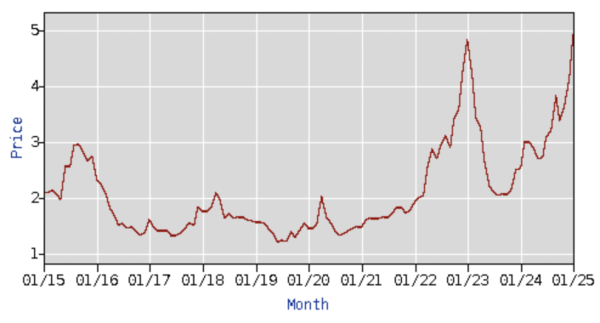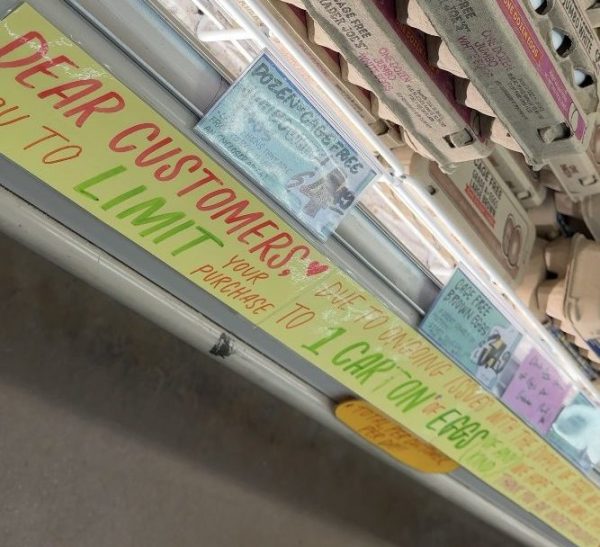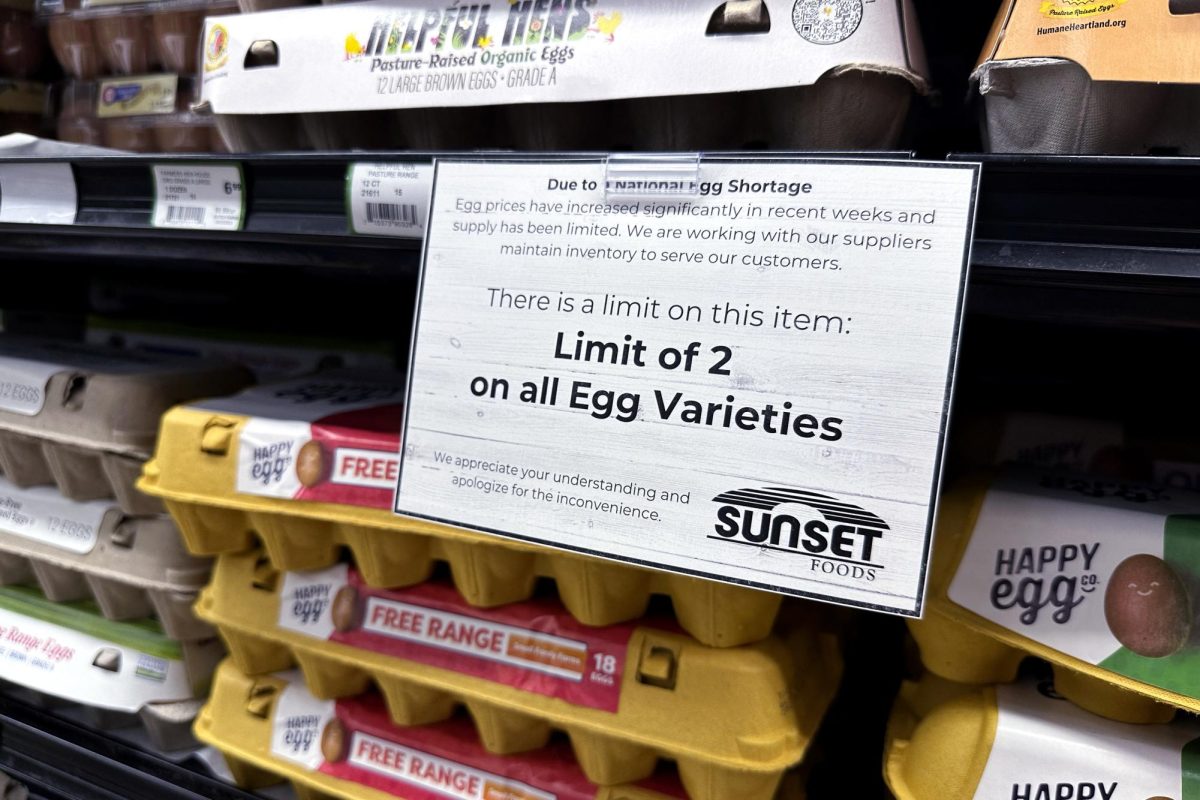Amid a massive bird flu outbreak affecting millions of chickens, many stores around the country are taking new measures to keep eggs on the shelves.
According to AP News, grocery companies like Trader Joe’s, Costco, Tom Thumb, Whole Foods and Kroger are all enforcing limits on how many cartons of eggs customers may buy at one time. Some of these limits are nationwide, and others vary by store.
Kroger on University Drive is currently limiting customers to one carton per person. Tom Thumb on South Hulen Street does not have a limit at the moment but has reported issues with stocking organic items like cheese, milk and eggs. Trader Joe’s on South Hulen Street also has a one-carton-per-person limit.
“I don’t have a problem with the purchase limit on eggs, I just don’t understand peoples reasoning to exceed the limit,” Yeny Alvarez, a Costco shopper, said.
Some shoppers make multiple separate transactions in order to bypass the stores limitation on egg purchases, she said.

As eggs become more scarce on shelves, their prices are trending upwards. In just one year, the price of a carton of one dozen eggs has jumped from $3 in Feb. 2024 to $4.95 last month, according to the U.S. Bureau of Labor Statistics.
Most of these bird flu outbreaks have been sourced to California, but Texas stores feel these effects as eggs are imported into the state, according to AP. As eggs become more scarce, their demand will only increase in the coming weeks as the Easter season nears.
“It’s hard to keep up with,” said Eunice Kay, a TCU graduate who relies on eggs as a major source of protein. “I eat eggs almost every day, and they’re definitely getting harder to find.”
Kay is just one of many nationwide college students and TCU students alike who use eggs, a quick and easy source of protein, as a healthy meal component in a busy college life.

As an alternative, if eggs are not on the shelves, students can look to other protein options such as cottage cheese, vegan egg substitutes or Greek yogurt.
Concerns about avian influenza, or H5 bird flu, are not limited to the price of eggs.
The Fort Worth Zoo briefly quarantined its birds and the city sent out a dead bird alert informing people how to safely report and handle dead or sick birds.
One person in Louisiana has died from the virus, and more than 60 cases in the U.S. have been reported in humans since the flu emerged nearly a year ago. The CDC has assessed the bird flu as a low risk to the general public as no person-to-person transmission has been identified. As with the case in Louisiana, risks are found to be high in animal-to-human exposures, according to a statement released Jan. 6, 2025 by the CDC.
Last March, the USDA, FDA and CDC announced that the bird flu had been detected in dairy cows for the first time in 16 states including Texas. On December 6, 2024, the USDA released a federal order requiring raw milk samples to be collected and tested for H5N1 surveillance.
There are currently no concerns from the USDA, FDA or CDC about the safety of commercial milk as the new federal order calls for all milk samples detected with H5N1 be destroyed, according to the American Veterinary Medical Association.










